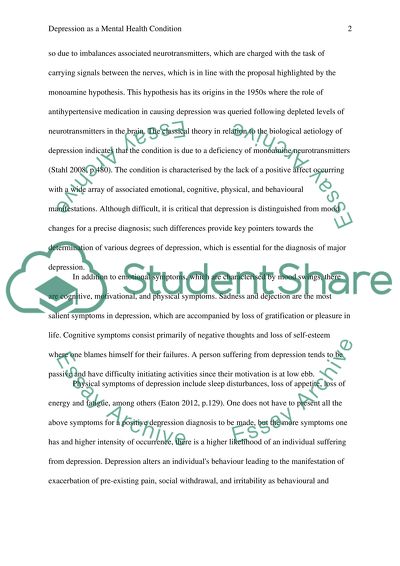Cite this document
(“Depression as a mental health condition Essay Example | Topics and Well Written Essays - 3000 words”, n.d.)
Depression as a mental health condition Essay Example | Topics and Well Written Essays - 3000 words. Retrieved from https://studentshare.org/psychology/1479543-depression-as-a-mental-health-condition
Depression as a mental health condition Essay Example | Topics and Well Written Essays - 3000 words. Retrieved from https://studentshare.org/psychology/1479543-depression-as-a-mental-health-condition
(Depression As a Mental Health Condition Essay Example | Topics and Well Written Essays - 3000 Words)
Depression As a Mental Health Condition Essay Example | Topics and Well Written Essays - 3000 Words. https://studentshare.org/psychology/1479543-depression-as-a-mental-health-condition.
Depression As a Mental Health Condition Essay Example | Topics and Well Written Essays - 3000 Words. https://studentshare.org/psychology/1479543-depression-as-a-mental-health-condition.
“Depression As a Mental Health Condition Essay Example | Topics and Well Written Essays - 3000 Words”, n.d. https://studentshare.org/psychology/1479543-depression-as-a-mental-health-condition.


